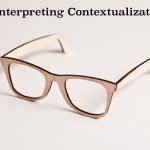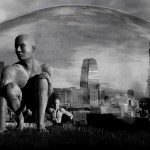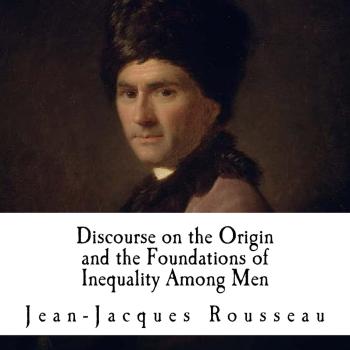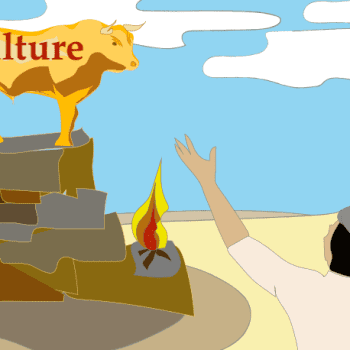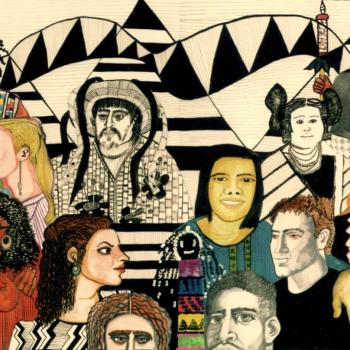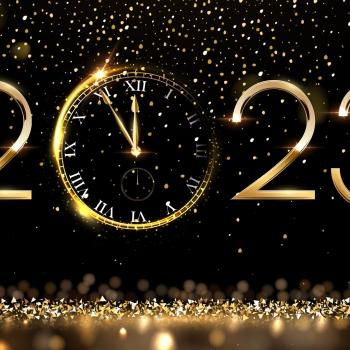Dystopia is a distinctly Western genre. It also is one of the most popular story genres of our day. The explosive growth of dystopian stories is no accident.
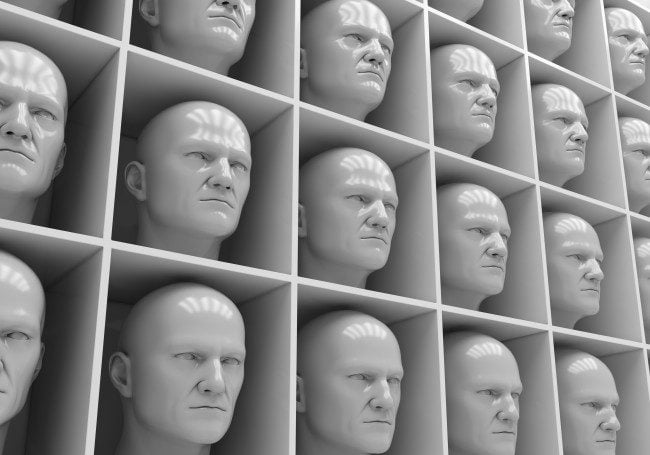
In effect, they contextualize a worldview perspective that is prevalent in Western culture. I am convinced of at least three benefits to understanding dystopian thinking.
- By seeing dystopian narratives as a form of contextualization, we gain insight concerning the underlying assumptions and concerns that mark Western society.
- Inasmuch as Western culture influences the missionary movement, we can foresee problems that potentially creep into the church around the world.
- I propose one more counter-intuitive idea––understanding dystopian stories can help us understand the Bible. This requires more explanation.
Before we consider the significance of dystopian stories, let’s consider a few key aspects of dystopia.
Distinctive Features of Dystopian Stories
Recall some popular dystopian movies, shows and books since the year 2000.
The Hunger Games (series), Divergent (series), Maze Runner (series), Black Mirror, The Uglies (series), Feed, The Minority Report, Station Eleven, Delirium (series), Matched (series), ….
Classic dystopian examples in literature include:
1984, Brave New World, The Giver, Do Androids Dream of Electric Sheep? [the basis for the movie Blade Runner], A Clockwork Orange, Fahrenheit 451, The Handmaid’s Tale, Lord of the Flies, The Chrysalids, …
For an excellent course on dystopian literature, available through Audible, click here. You can find a lot of details there. For now, here are a few broad characteristic features of dystopian stories.
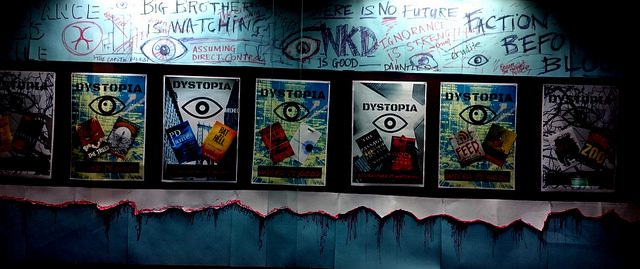
1. Conformity vs. Individualism
Dystopias highlight the tension between conforming to social norms and maintaining individuality. The family is major causality in this conflict between communal and individual identity. A key mantra of Divergent is “faction before blood.” Though lengthy, the following quote is an amazingly rich summary of a key point I will focus on momentarily.
Families were portrayed as taboo in all three of these novels [Brave New World, 1984, Anthem]. Even in 1984 where families were depicted as an unfortunate necessity, children were conditioned from an early age to be spies and were encouraged to turn on their parents, thus destroying the sacred familial bond.
Along with questions of personal identity and purpose, the loss of family and personal history is ubiquitous throughout dystopian fiction. The family is genetic memory. It situates one in space and time; history and biology. It is family that gives us our uniqueness, our separate identity, and our differentiated tribe, regardless of how small it might be. The loss and destruction of the family means to symbolically destroy one’s connection to history. Part of what makes a dystopia so disturbing is its lack of context.…
In modern dystopian literature the identity of the self and the continuity of the family are consciously and systematically destroyed by the ruling factions of the society. However, as we start to move into the post-modern, questions regarding origin, identity and self, become far more elusive. Dystopian portrayals of origins move from a highly regulated and oppressive system, to one that questions origins themselves. The destruction of identity is not explicit in post-modern dystopias, but implicit in its entire fabrication.[1]
The quote beautifully captures the angst of Western individuals (and, if we are not careful, an increasing number of Christians).
2. Language Manipulation
Dystopias typically highlight the use and abuse of social power. George Orwell commentates on the relationship between language and social control. In his essay, Politics and the English Language, he writes
Political language has to consist largely of euphemism, question-begging and sheer cloudy vagueness.… But if thought corrupts language, language can also corrupt thought.
Power is secured by controlling or changing the meaning of words. This theme is at the forefront of 1984.
3. Security vs. Freedom
The supreme authorities in dystopia routinely justify their actions. Often in response to some calamity, an authoritarian regime provides security at the expense of freedom. Superficially, the central warning of dystopias is against the evils of conformity, group-think, and the suppression of individuals.
This picture only tells part of the story. But I’ll wait to say more below.
Is Western Culture Dystopian?
Why are people so fascinated with utopian/dystopian stories? Does Western culture have dystopian characteristics?
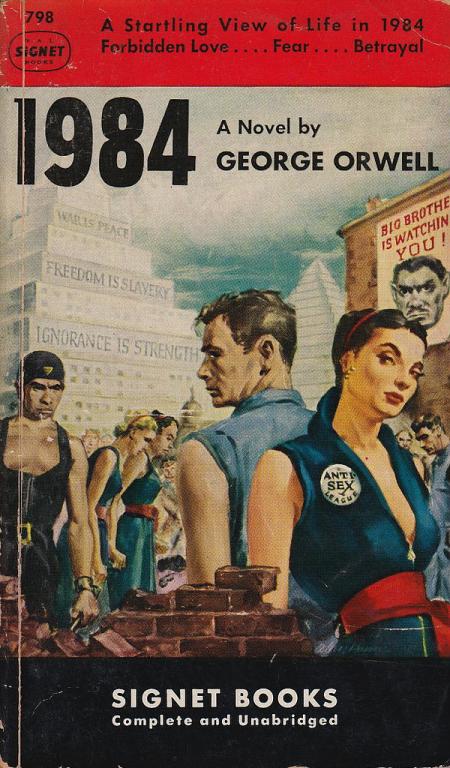
One common suggestion is that Westerners increasingly fear centralized, totalitarian authorities, who demand conformity and crush individuality. The anxiety spans the political spectrum. One might be afraid of the growth of communism. Likewise, many fear the trend among Western governments to consolidate power in the name of fighting terrorism. Dystopian writers certainly protest authoritarians who use power to oppress non-conforming individuals.
But what can go unnoticed is how social power is secured and protected. One could argue the underlying method of controlling society is hyper-individualism, via the dissolution of subcultures. Dystopian society restricts one’s ability to identify personally with others, even and especially one’s family.
Here is the irony–– Westerners create the dystopia they fear in response to perceived fears of totalitarianism. How so?
People are increasingly sensitive to the rights and plights of minorities. This itself is not a problem. However, overreactions, by definition, are a response to legitimate concerns.
Individualism is confused with individuality. Westerners are no longer content to protect individuality; they now militantly advocate for individualism for individualism’s sake. Socially speaking, individualism is mandated in the name of individuality.
Disdain for authoritarianism has produced a tyranny of the minority. Minority groups simply need to cry “intolerance” and the majority must yield lest they face consequences. Diversity is celebrated above all else. One is supposed to be “proud” of being black, brown, female, Latino, gay, Jewish, etc.… On the other hand, a person would be insensitive and “bigoted” to celebrate being white, male, straight and/or Christian.
In dystopian books, “the state” usually plays the villain role. Rather than a formal authority like the state, social secularists now play the role of “big brother.” I suspect this is one reason why Christians fail to see the dystopian dynamics at play in Western society.
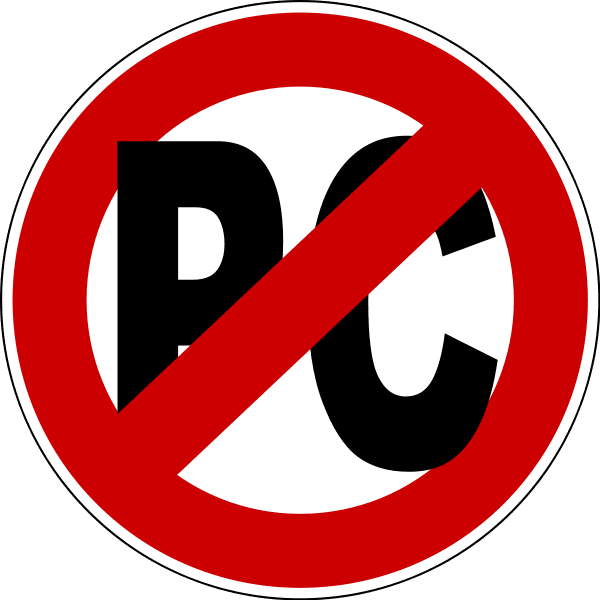
People must be “politically correct” lest they offend (the great “sin” of Western culture).
Many people think “political correctness” is a mere inconvenience, never suspecting it might be a subtle strategy akin to 1984’s “Newspeak.” So, Christians succumb to social pressure to play cultural language games.
The recent redefinition of marriage is a case-in-point. You show your cards simply by choosing to describe immigrants as either “illegal” or “undocumented.” Sportscasters once announce that an “African American” won a race because they didn’t know what to call a black, French runner. And now we find ourselves discussing the so-called differences between “gender” and “sex.” The dystopian instinct to resist conformity has led people even to reject nature.
The individualism produced by political correctness has the same alienating effect as any dystopian antagonist, whether “Big Brother,” “the Capital,” or the “faction system.” That is, both fictional dystopias and contemporary Western culture foster an extreme brand of individualism that ultimately undermines group identity. By dissolving collective bonds, individuals forfeit the support they otherwise would have from family and social tribe.
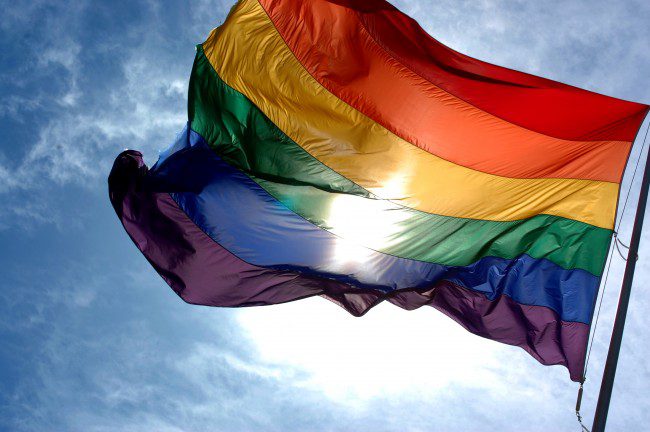
Did Christendom birth dystopia?
Christians desperately need to distinguish individualism and individuality. Westerners legitimately reject attempts to eradicate individual distinctions. After all, Paul’s comparison of the church to a body presumes diverse functions and roles (cf. Rom 12; 1 Cor 12).
The rejection of Christianity and the growth of secularism corresponds to the emergence of dystopian writings. This is no coincidence.
Sadly, Western Christians’ abuse of power to force conformity has partially led to secular protest. Secularists fear Christians will use whatever power necessary to suppress “unacceptable differences.” Not long ago, gay men could be imprisoned or compelled to be sterilized. Christians have led the fight to prevent the building of mosques in local neighborhoods. They also have tried to legislate (Christian) prayer in schools. Countless stories could be told about Christians using power to oppress women, Chinese, and other minorities.
I don’t mention these things to condemn Christianity or religion; rather, we must acknowledge why people feel the way they do. We ought not be defensive and instead temporarily set aside debates of whether “they” are right or wrong.
Dystopia is a contextualization of Western concerns. The genre highlights legitimate concerns. Dystopias are a helpful tool. Superficially, they help us understand others’ thinking. However, I think a deeper understanding of the genre exposes the subtle ways that Westerners (and many Christians) unwittingly create the sort of dystopia they fear.
Another point is more significant and surprising. Dystopian stories provide a lens to read the Bible. Not that we should impose a dystopian template on Scripture. Instead, an awareness of dystopian concerns sheds light on the overarching biblical narrative.
And that will be the subject of my next post.
–––––––––––––––––––––––
What dystopian novels or movies are you most familiar with?
In what ways do you see dystopian concerns or characteristics manifest in Western culture?
[1] Riven Barton, “Dystopia and the Promethean Nightmare.” Pages 5–18 in The Age of Dystopia: One Genre, Our Fears and Our Future. Edited by Louisa MacKay Demerjian.


